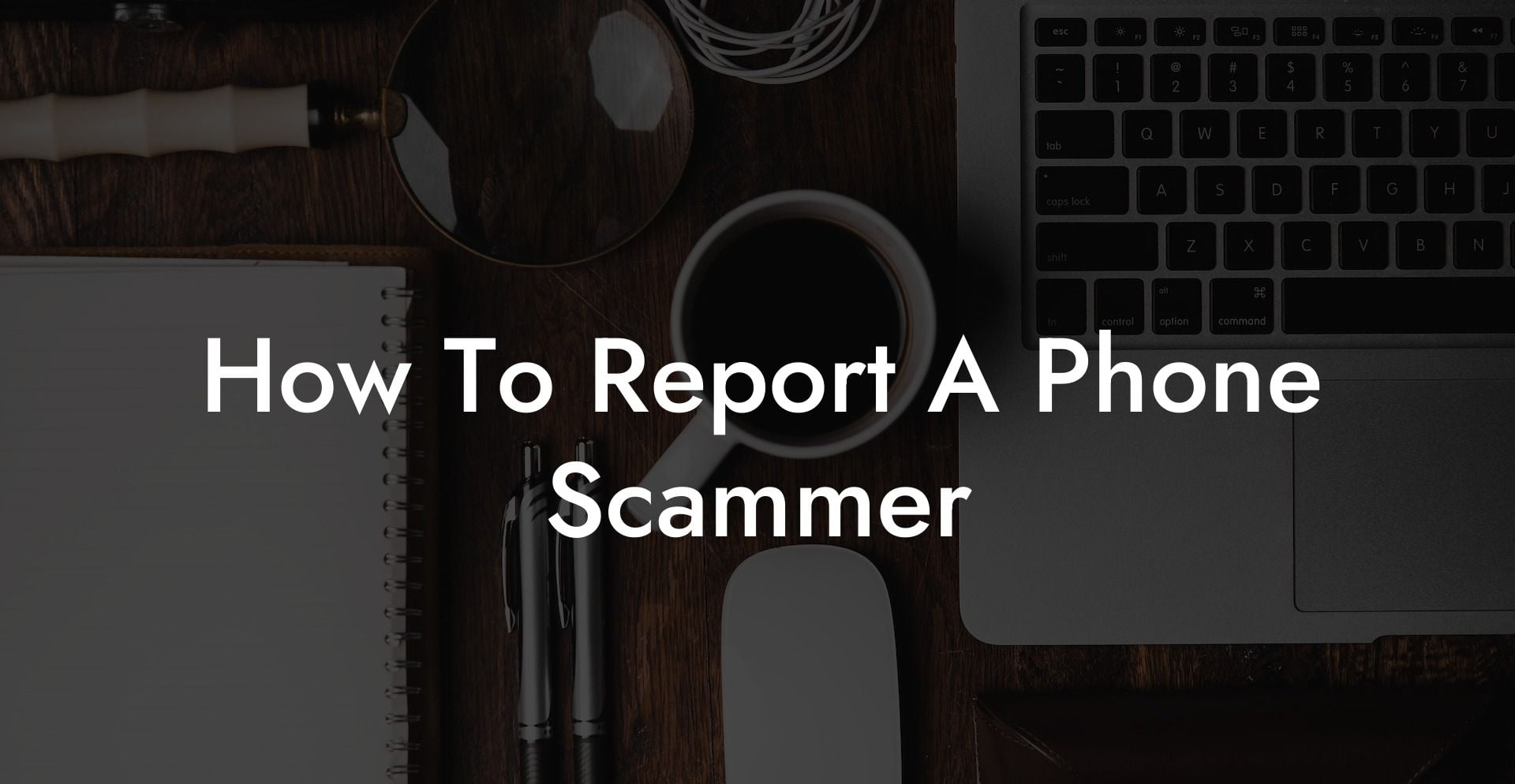Have you ever received an unexpected call from someone claiming to be an IRS agent, bank staff, or even a distant relative? If you've ever been a target of a phone scam, you know how unnerving and frustrating that experience can be. Phone scams are a common form of voice phishing, where scammers exploit your trust and credibility to trick you into giving up sensitive data, such as your passwords or bank details. If you've been targeted by a phone scammer, it's crucial to know how to protect yourself and others by reporting these criminals. In this guide, you'll learn how to recognize and report phone scams effectively, and we'll provide a step-by-step process to ensure your security and help put an end to these criminal activities.
How To Report A Phone Scammer Table of Contents
1. Identify the Scam
Before you can report a phone scammer, you need to be certain that you are indeed dealing with a scam. Look out for the following red flags:
Protect Your Data Today With a Secure Password Manager. Our Top Password Managers:
- Callers offering you money or unexpected prizes.
- Callers insisting that you need to act quickly or face severe consequences.
- Callers who ask you to share sensitive personal data, such as Social Security and bank account numbers.
- Callers who demand immediate payment through unconventional methods, like gift cards or wire transfers.
2. Gather Relevant Information
Once you have identified the scam, it's important to collect as much information as possible to help authorities track down the scammers. This includes:
- The scammer's phone number (even if it was spoofed or hidden, as it could still provide crucial information).
- The exact date and time of the call.
- Any specific details of the scam, such as the amount of money requested or any personal information they tried to obtain.
- Any potential company names or websites mentioned during the call.
3. Report the Scam
Armed with the necessary information, it's time to file a report. You should report phone scams to the following organizations:
- The Federal Trade Commission (FTC): The FTC is the primary government agency responsible for handling phone scams. You can report the scam at ftc.gov/complaint or call 1-877-FTC-HELP (1-877-382-4357).
- The Federal Communications Commission (FCC): The FCC deals with issues related to telecommunications, including phone scams. You can file a report at fcc.gov/complaints or call 1-888-CALL-FCC (1-888-225-5322).
- Your State's Attorney General: Many states maintain their own consumer protection agencies to deal with local scams. Report the incident to your state's attorney general via their official website.
- Local Law Enforcement: While local police departments may not have jurisdiction over phone scammers, reporting the crime may help them identify patterns and warn the community about potential threats.
How To Report A Phone Scammer Example
Imagine you receive a phone call from a stranger who claims to be a Microsoft employee. The caller informs you that your personal computer has been hacked and that they urgently need your assistance to resolve the issue. They ask you to download a specific software to give them remote access to your computer, which will allow them to "fix" the problem. However, this is a known scam scheme targeting unsuspecting individuals.
Instead of engaging further, you collect the necessary information from the caller, such as their phone number and the exact time of the call. You then report these details to the FTC, FCC, your state's attorney general, and local law enforcement. By doing so, you play an integral part in the fight against phone scammers, protecting yourself and others in the process.
Now that you've learned how to report phone scammers, you're better equipped to protect yourself, your loved ones, and your community from voice phishing tactics. Remember, knowledge is power, and by sharing your experiences and reporting these criminals, you can make a difference. If you found this guide helpful, be sure to explore other comprehensive guides on the Voice Phishing blog and share this post with friends and family so that we can all stay vigilant in the battle against phone scams.
Protect Your Data Today With a Secure Password Manager. Our Top Password Managers:















